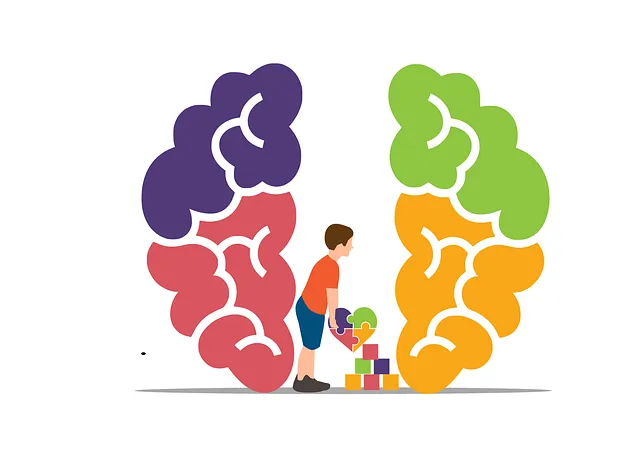Mental wellness coaching programs, as highlighted by Kaiser Permanente's Broomfield behavioral health services reviews, are gaining recognition as vital components of holistic healthcare. These programs empower individuals with personalized guidance for stress management and emotional regulation, fostering positive change through self-reflection. By integrating evidence-based practices like cognitive-behavioral therapy and mindfulness, these initiatives improve mental well-being, reduce anxiety, and prevent depression. Kaiser Permanente's success lies in its comprehensive approach, diverse services, and community-oriented focus on destigmatizing mental illness. Effective coaching curricula require a blend of psychological knowledge and practical teaching skills, with regular assessments ensuring dynamic adjustments for continuous improvement.
Mental wellness coaching programs are gaining prominence as essential tools within modern healthcare systems, offering personalized support for individuals seeking improved mental well-being. This article provides a comprehensive overview of this burgeoning field, drawing insights from leading organizations like Kaiser Permanente Behavioral Health Services in Broomfield, whose innovative approaches set industry standards. We explore the role of coaching in enhancing access to care, developing effective curricula, and implementing evaluation methods to ensure program success.
- Understanding Mental Wellness Coaching: A Comprehensive Overview
- Kaiser Permanente Behavioral Health Services: A Case Study
- The Role of Coaching Programs in Modern Healthcare
- Developing Effective Mental Wellness Coaching Curricula
- Measuring Success: Evaluation and Review Techniques for Coaching Programs
Understanding Mental Wellness Coaching: A Comprehensive Overview

Mental wellness coaching programs have emerged as a vital component in promoting holistic well-being, especially within communities seeking comprehensive healthcare solutions. This approach centers on empowering individuals to take charge of their mental health and cultivate resilience through personalized guidance. The role of a mental wellness coach is multifaceted; they facilitate self-reflection, help clients identify unhealthy patterns, and provide strategies for stress management and emotional regulation. By integrating evidence-based practices with practical techniques, coaches support individuals in achieving better mental health outcomes.
In the context of organizations like Kaiser Permanente behavioral health services reviews Broomfield, these coaching programs can be tailored to meet diverse needs. The Community Outreach Program Implementation initiative often involves educating and engaging community members, fostering a sense of collective responsibility for mental wellness. Moreover, by incorporating Self-Care Practices into daily routines, individuals can build buffers against mental health challenges. Mental wellness coaches play a pivotal role in advocating for Mental Health Policy Analysis, ensuring that communities have access to comprehensive resources and support systems for lasting well-being.
Kaiser Permanente Behavioral Health Services: A Case Study

Kaiser Permanente Behavioral Health Services, located in Broomfield, stands as a beacon of hope and healing for many seeking mental wellness coaching. This comprehensive program offers a wide array of services, from crisis intervention guidance to tailored self-care routine development, all aimed at empowering individuals to take charge of their mental health. The organization’s dedication to destigmatizing mental illness through various initiatives has garnered positive reviews from those who have benefited from their care. By combining evidence-based practices with personalized support, Kaiser Permanente Behavioral Health Services is transforming lives and setting new standards in the field.
The program’s success lies not only in its diverse offerings but also in its community-oriented approach. Through collaborative efforts, they foster an environment where individuals feel seen, heard, and valued. This holistic perspective recognizes that mental wellness is intricately tied to overall well-being, encouraging clients to embrace a balanced lifestyle that includes physical activity, mindfulness practices, and strong social connections. By integrating these principles into their coaching programs, Kaiser Permanente Behavioral Health Services ensures sustainable growth and improved mental health outcomes for its diverse clientele.
The Role of Coaching Programs in Modern Healthcare

In today’s fast-paced world, mental wellness coaching programs have emerged as a vital component of modern healthcare, especially with organizations like Kaiser Permanente behavioral health services reviews highlighting their efficacy. These programs play a pivotal role in addressing the growing need for accessible and personalized support for individuals seeking improved mental well-being. By focusing on evidence-based practices, they offer a unique approach to enhancing coping skills development, depression prevention, and anxiety relief.
Coaching sessions, tailored to meet individual needs, provide a safe space for clients to explore their thoughts and emotions while learning practical strategies to navigate life’s challenges. The integration of coaching into healthcare systems, such as the services offered in Broomfield, ensures that individuals receive holistic care that goes beyond traditional medical treatments. This approach not only empowers people to take charge of their mental health but also fosters long-term resilience and overall well-being.
Developing Effective Mental Wellness Coaching Curricula

Developing effective mental wellness coaching curricula is a multifaceted process that requires a deep understanding of both psychological principles and practical teaching methods. At Kaiser Permanente behavioral health services in Broomfield, for instance, reviews highlight the importance of tailoring programs to meet diverse needs. This involves integrating evidence-based practices, such as cognitive-behavioral therapy techniques, mindfulness exercises, and stress management strategies, into engaging, interactive sessions.
Effective curricula also emphasize strong communication strategies, healthcare provider cultural competency training, and ongoing risk assessment for mental health professionals. By fostering an environment of trust, empathy, and cultural sensitivity, coaches can create safe spaces for individuals to explore their mental health challenges openly. Moreover, regular assessments help identify areas for improvement, ensuring that coaching programs remain dynamic, responsive, and aligned with the latest research and best practices in mental wellness.
Measuring Success: Evaluation and Review Techniques for Coaching Programs

Evaluating the success of mental wellness coaching programs is paramount to ensuring their effectiveness and making informed improvements. Similar to Kaiser Permanente behavioral health services reviews in Broomfield, comprehensive assessments are essential tools to gauge progress. Coaches can employ various techniques such as pre-post program surveys to measure changes in client perceptions and well-being. These evaluations provide valuable insights into the impact of coaching interventions.
Furthermore, regular check-ins and ongoing feedback sessions allow for dynamic adjustments. By integrating Compassion Cultivation Practices and promoting Self-Care Routine Development for Better Mental Health, coaches can tailor their approach. This ensures that Stress Reduction Methods are not only taught but also successfully implemented in clients’ daily lives, fostering lasting mental wellness improvements.
Mental wellness coaching programs, as exemplified by Kaiser Permanente’s successful behavioral health services in Broomfield, play a pivotal role in modern healthcare. By integrating these programs, healthcare systems can offer holistic support, enhancing patient outcomes and overall well-being. Effective curricula development, coupled with rigorous evaluation techniques, ensures that such initiatives remain impactful and aligned with the evolving needs of individuals seeking mental wellness support. Moving forward, continued innovation and research in this field are crucial to unlocking the full potential of coaching programs in promoting mental health awareness and accessibility.






